A super easy light starter to counter the heavy mains of a big dinner. It’s a cold starter (apart from the cooking of the scallops) so the preparation of this dish can be done in advance. There’s a lot of late season tomatoes knocking around in grocery stores. Heritage tomatoes have more bite and texture which works perfect for this dish.
Recipe by Sebastian Skillings @the.hungry.fishmonger
INGREDIENTS (for 3 servings):
- 6 scallops (2 per person and cut in half horizontally)
Romesco sauce:
- 100g roasted pepper
- 50g flaked almonds
- 1 tbsp sherry vinegar
- 30ml olive oil
- 1 garlic clove (minced)
- ½ tsp paprika
Tomato salad:
- (Heritage) tomatoes of different colors and shapes
- Splash of balsamic vinegar
- Splash of olive oil
- Pinch of salt
- Pinch of sugar
INSTRUCTIONS:
For the tomato salad:
- Place cut tomatoes into a mixing bowl and add a splash of balsamic vinegar, a splash of olive oil, and salt and pepper to taste. Mix and set aside
For the romesco:
- In a dry pan, slightly toast the almonds
- Blend together the roasted pepper, almonds, sherry vinegar, olive oil, garlic, and paprika. Taste and add seasonings if needed
For the scallops:
- Pat scallops dry and add to a very hot saucepan with a little olive oil. Fry for one minute on each side and transfer to kitchen towel/paper towels to remove excess oil
Place some romesco on a plate, with the tomatoes on top, followed by the scallops. Drizzle some oil across the plate and garnish with micro greens/dry herbs.


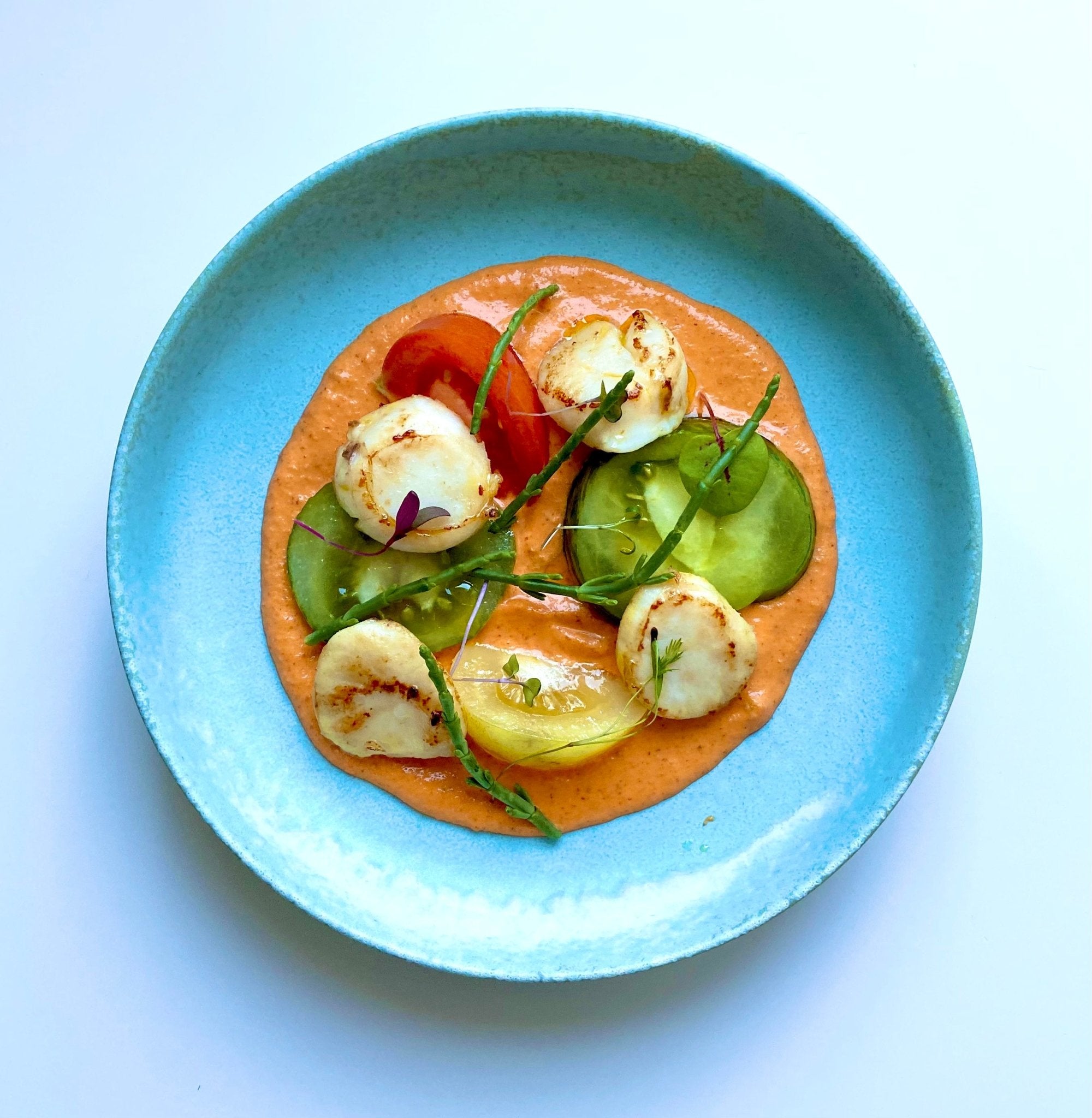
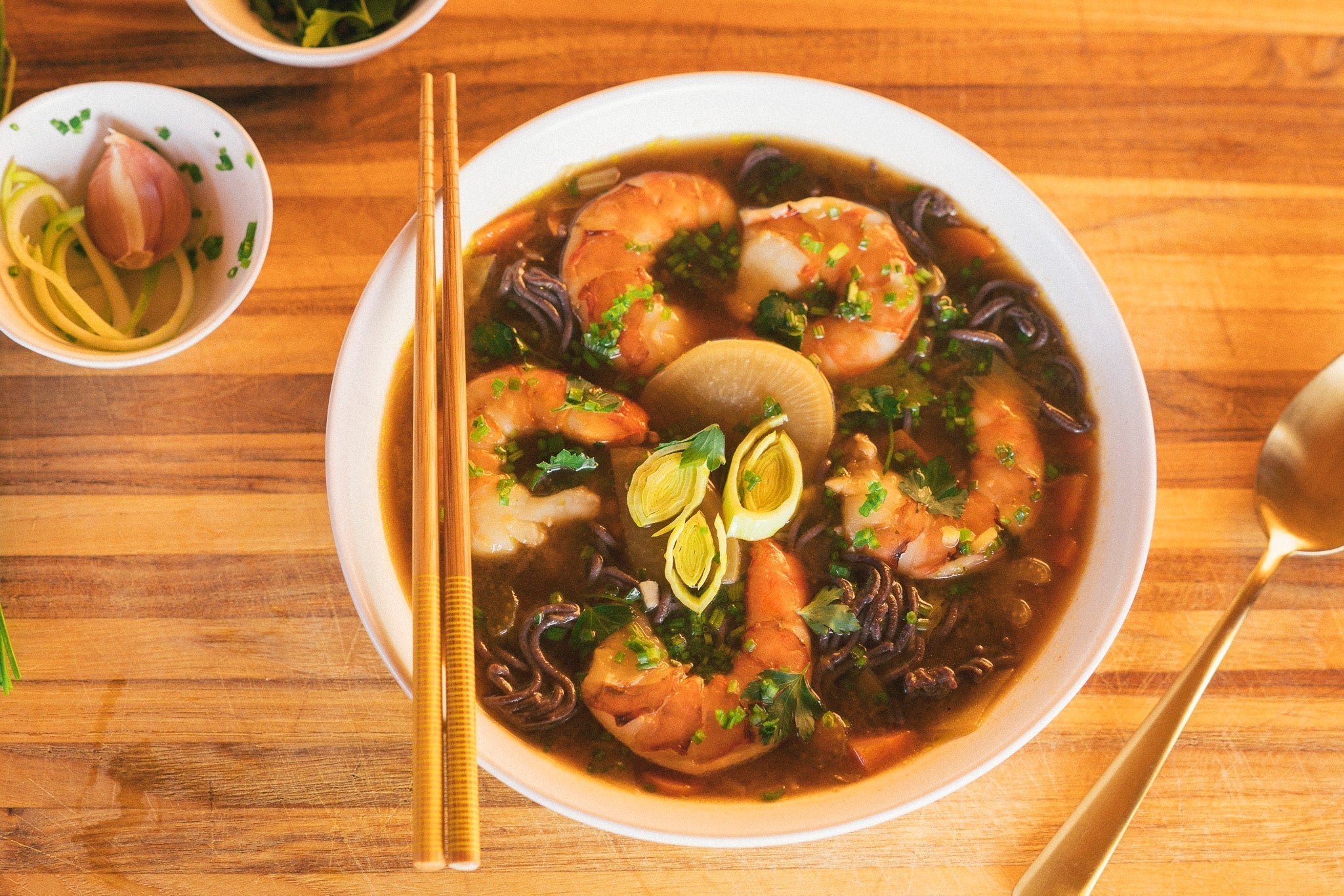
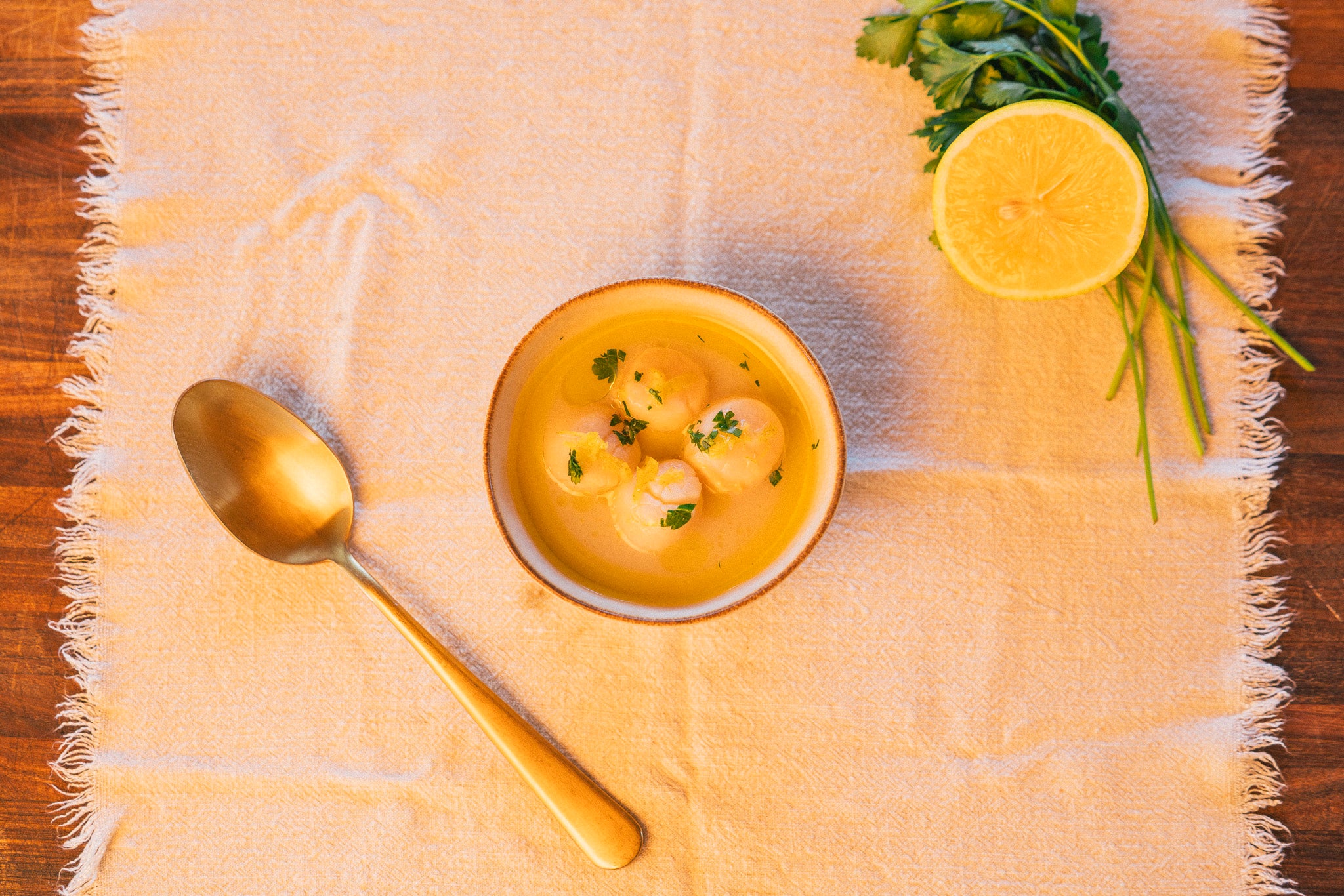
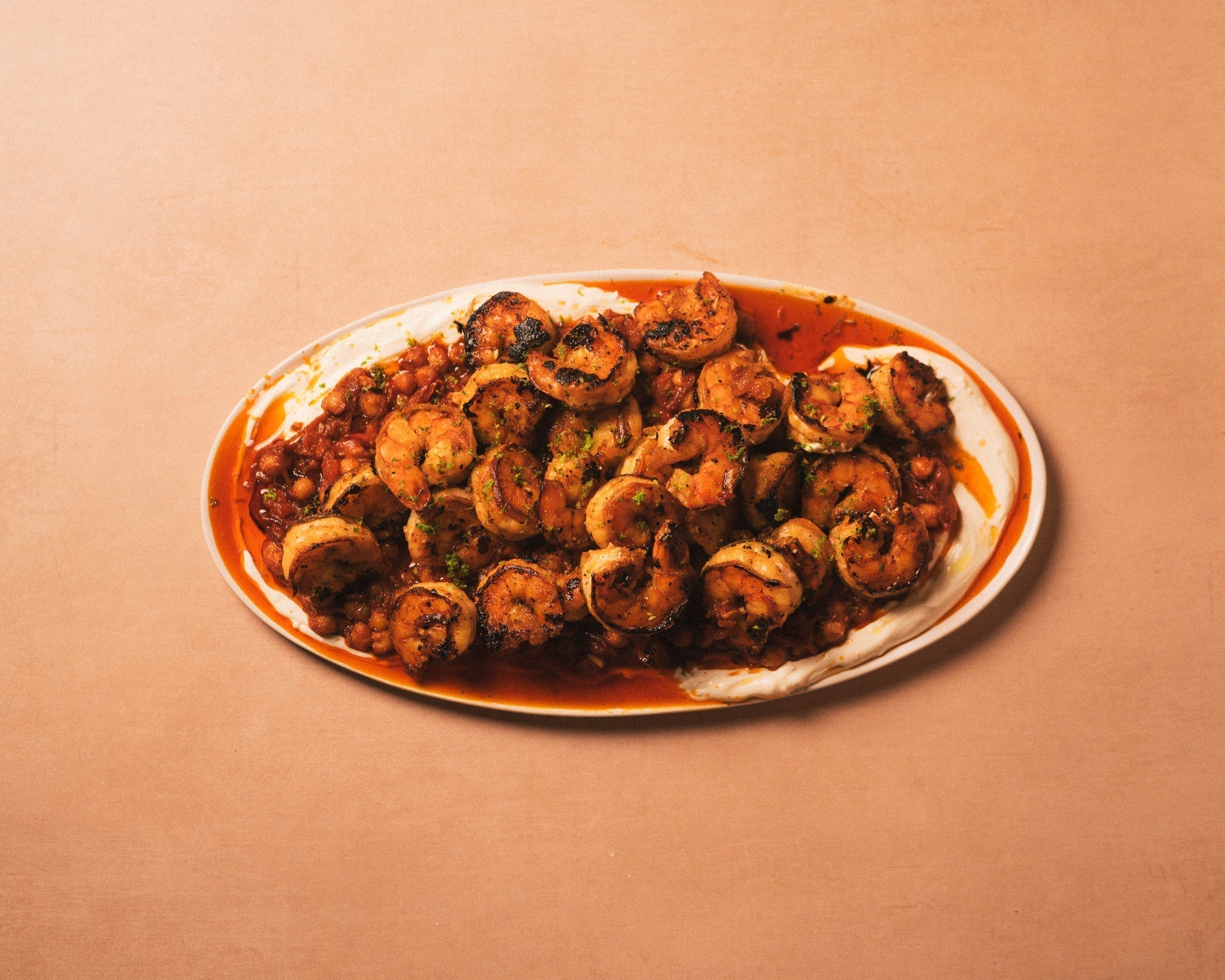
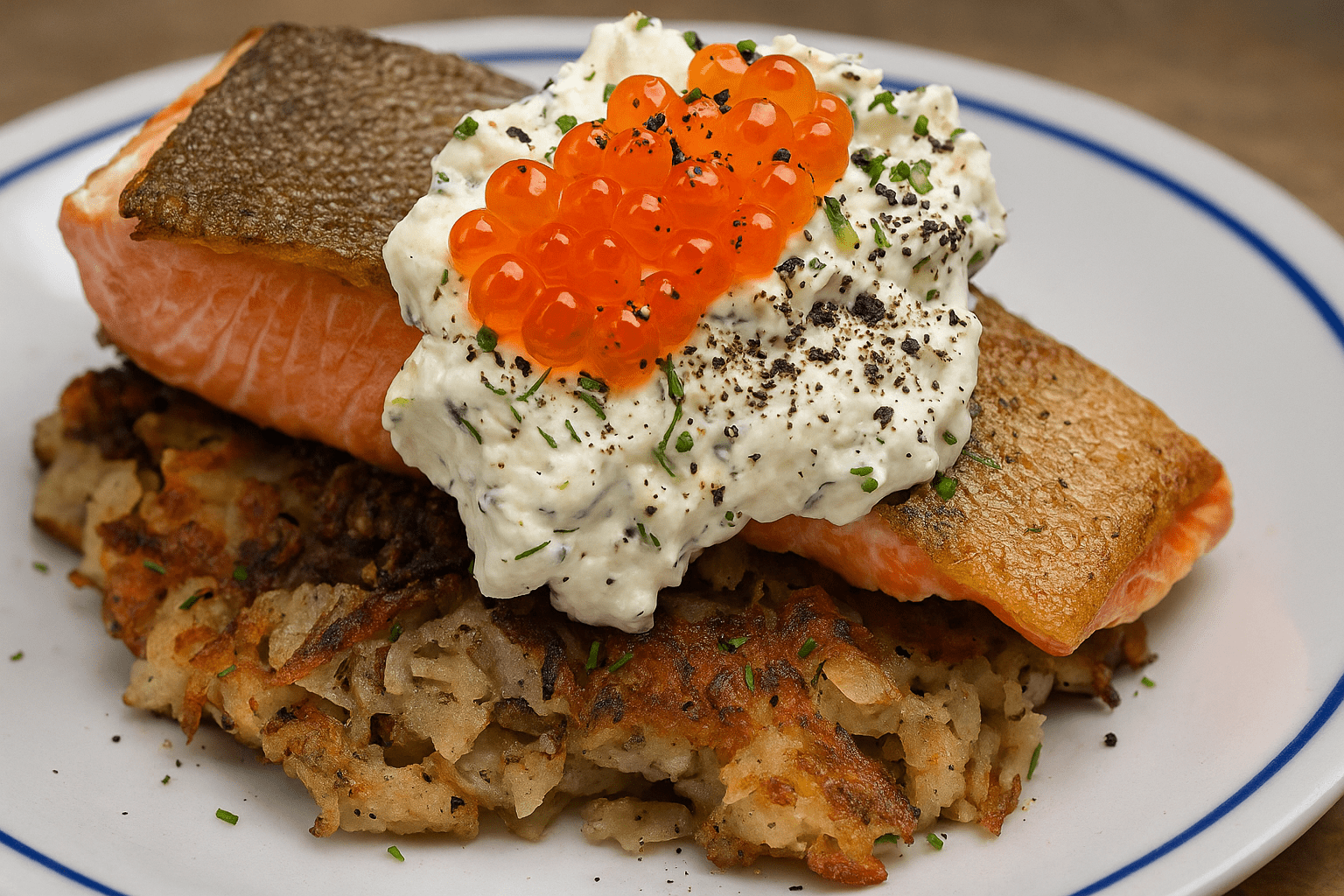
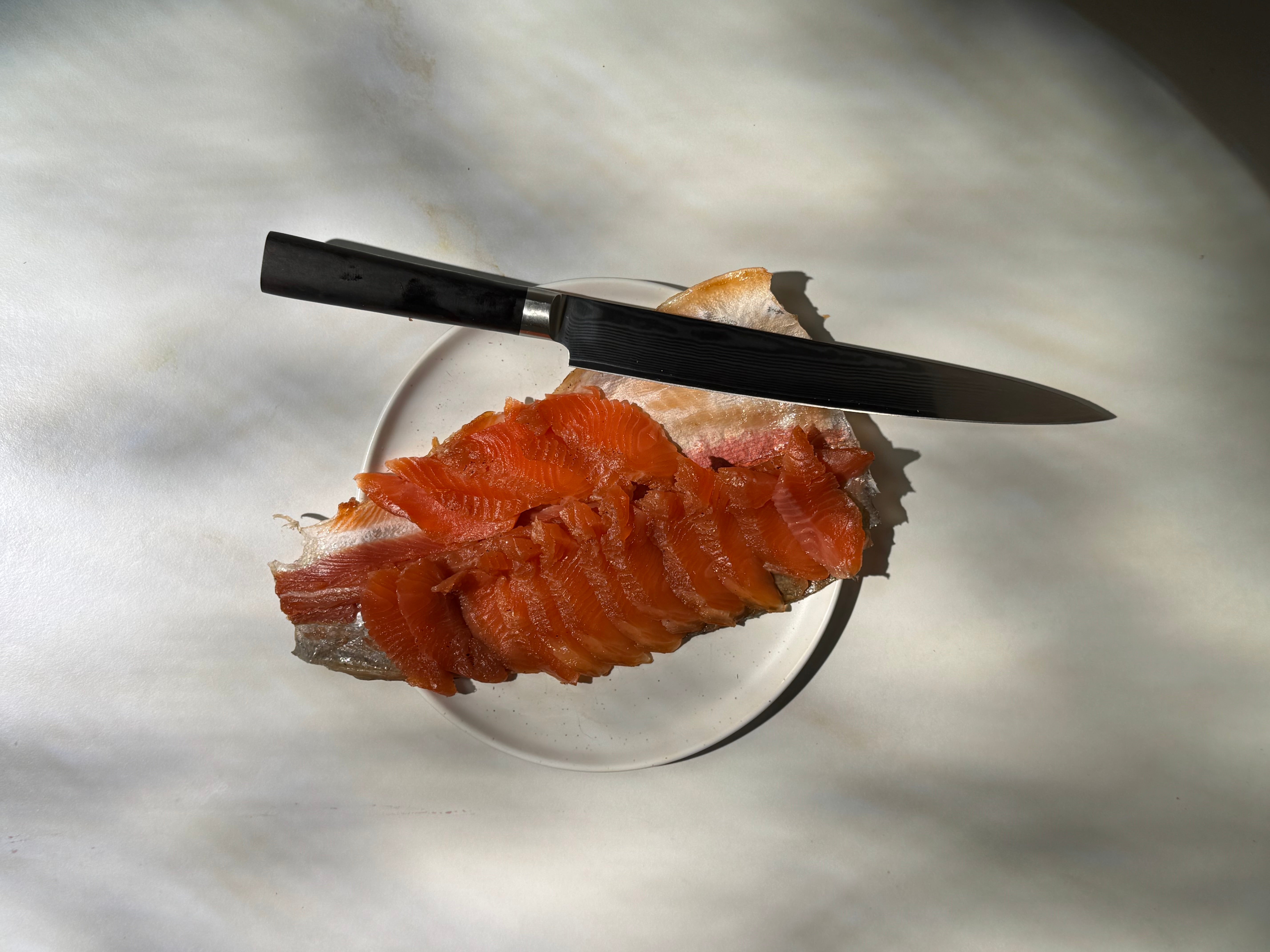
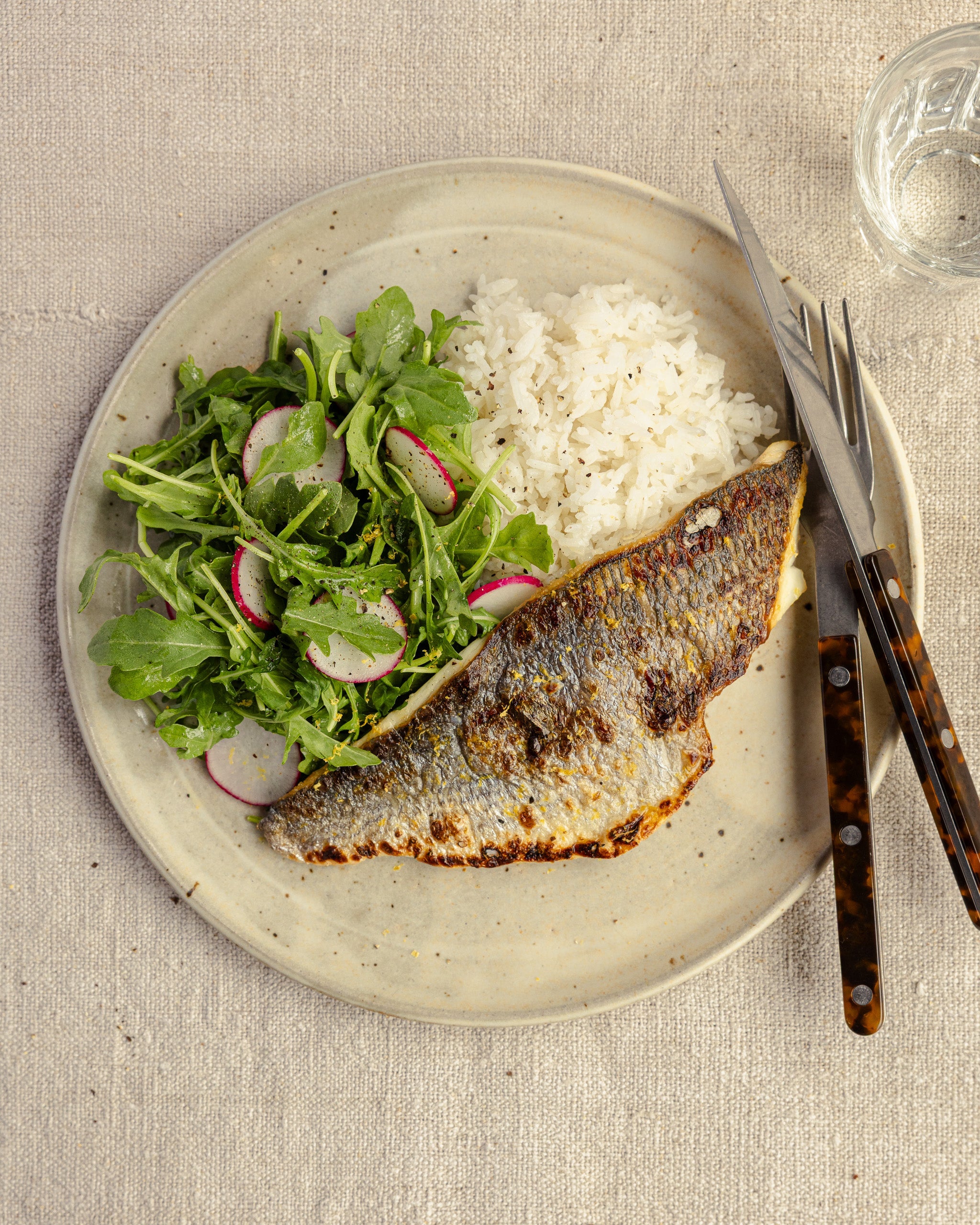

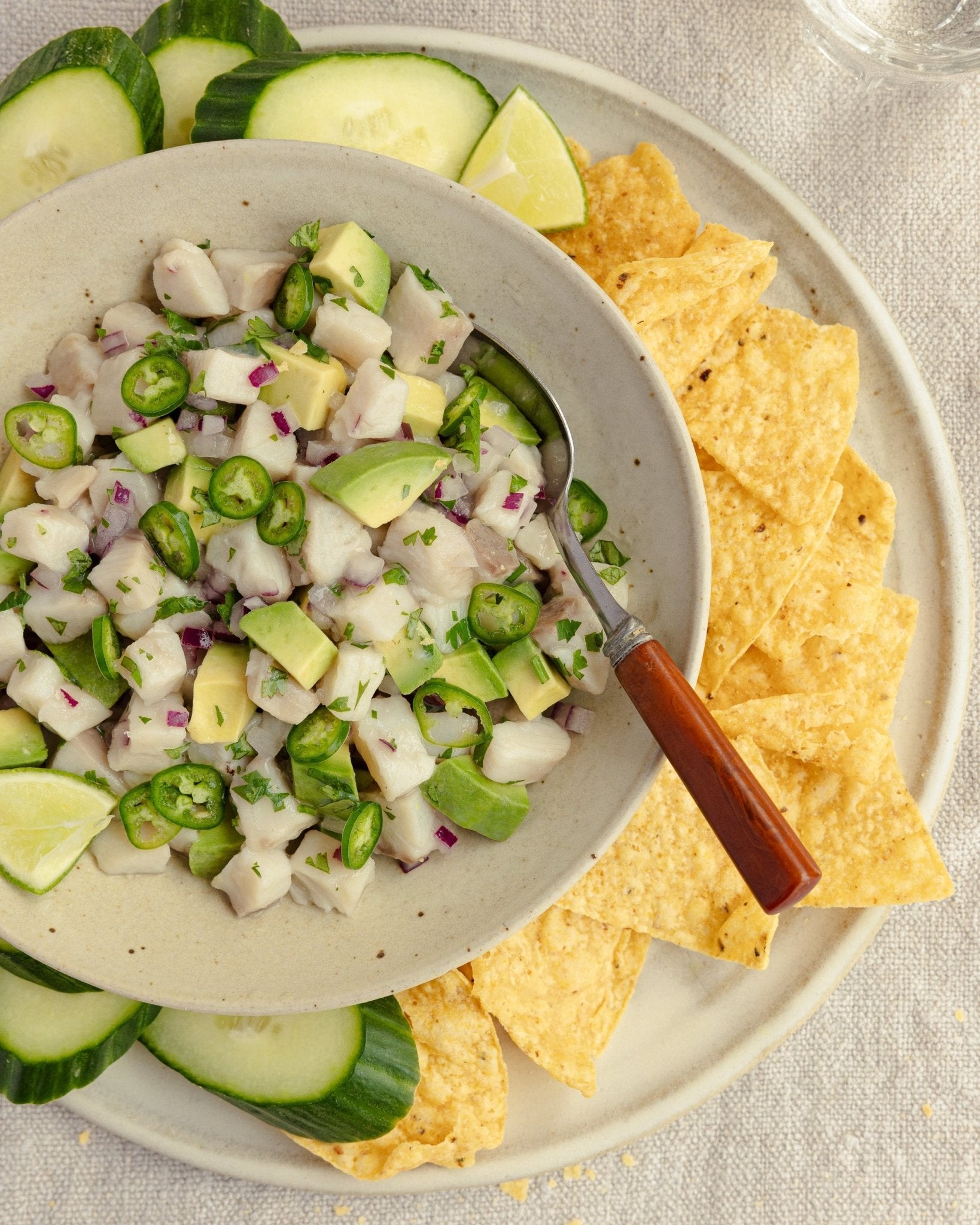
Share:
Hiramasa Yellowtail Kingfish and Fennel Crudo Recipe
Regenerative Seabass Sliders with Jalapeno and Cabbage Slaw